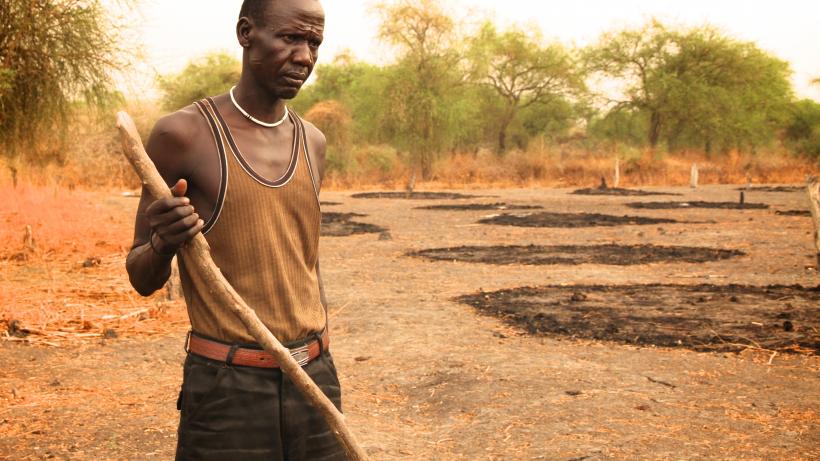
Impact of COVID-19: Poverty and livelihoods
The consequences of the COVID-19 pandemic are stretching far beyond the spread of the disease. Efforts to contain transmission have triggered the worst global economic crisis in a century, devastating the livelihoods of millions. In the developing world, reduced incomes, food insecurity, inadequate education, and increased domestic violence, are all contributing to a worsening in welfare and poverty.
Poverty is expected to increase for the first time since 1998, erasing the progress made in the past five years and threatening the goal of eradicating extreme poverty by 2030, particularly in fragile states where most of the global extreme poor will reside. Around 40 to 60 million additional people could fall into extreme poverty in 2020 compared to 2019. The increase in poverty has been driven by large and sustained falls in income, leading to the depletion of savings and food insecurity. On top of that, welfare is being further eroded from the impact of widespread school closures and a higher incidence of domestic violence.
Reduced incomes and coping measures
The global economic downturn, extensive containment measures, and inadequate social protection have meant a significant drop in income for many in the developing world. Of those surveyed, 80% in Rwanda, 65% in Cote d’Ivoire, 41% in Ghana, and 20% in Colombia reported earning less than before the pandemic. More than 85% of Senegalese survey respondents reported a reduction in income which was particularly acute for those outside Dakar and with less education. As of late-August, households in Siaya county reported receiving less income support compared to late-April.
With lower incomes, many have resorted to alternative means to sustain their livelihoods. Since April, households in Sierra Leone have increasingly depleted savings, sold assets, and acquired debt. In Cote d’Ivoire, 70% of respondents had used their savings to pay for food, with 80% of respondents in Rwanda having done the same for food, healthcare, or other expenses. For these households, economic security has worsened, leaving them extremely vulnerable to future shocks, such as further lockdowns. In Ghana, 29% of respondents reported they would not be able to access approximately US$ 87 for an emergency, while 50% in Colombia reported that they would not have access to US$ 270.
Food insecurity, reduced access to education, and domestic violence
Despite the use of assets to supplement lower incomes, many households have reported a rise in food insecurity. In Siaya county, households reported lower food expenditure throughout the past six months. Limiting portion sizes and reducing the number of meals has been common, as was reported by 50% of respondents in Colombia, 40% in Ghana, and 25% in Burkina Faso. Over half the respondents in Rwanda and a third in Senegal have lowered their food consumption, with the same being reported in Sierra Leone.
Livelihoods have been further worsened through reduced access to education. As of late-September, there were an estimated 53 country-wide school closures, affecting 850 million learners. Approximately 282 million children are missing out on school meals, only some are being alleviated by government- and World Food Programme-led initiatives. The level of home learning differs across countries: while the vast majority in Colombia and 80% of children in Rwanda reported as spending time on education at home, only 64% of primary and 57% of secondary-school children reported the same in Ghana. In Senegal, 30% are not engaging in any learning activity, which is exacerbating inequalities.
Instances of domestic violence have increased. This is particularly worrying in regions such as Africa where rates were already high. In Siaya county, women have experienced increased physical threats, as well as physical and sexual abuse throughout the pandemic. Research has found that during the lockdown in Mexico City, there was a spike in the number of calls asking for psychological services due to intimate partner violence.
Need to rethink social policy
Livelihoods are under threat for millions of households in the developing world. Existing social protection schemes are unlikely to meet the coverage and targeting criteria required to address the worsening economic insecurity. Policymakers and multilateral institutions need to rethink social policy, such as with production-support measures or actively managing and distributing essential goods. Extended periods of lost education can have devastating consequences for many children and so, whether at school, at home, or remote, active policy is needed to maintain learning.
This blog is the third part of a series on the different impacts of COVID-19 in developing countries. See the other parts here and here.

